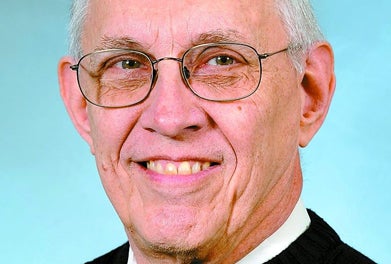Will CCPL follow the lead of Paris-Bourbon library?
Published 4:00 pm Wednesday, March 13, 2024
|
Getting your Trinity Audio player ready...
|
This piece was originally published on WinCity Voices (www.wincityvoices.org).
Recently the Paris-Bourbon County Public Library declared itself a “Sanctuary Library.” This was particularly unusual during a period when so many public libraries are being pressured to restrict and censor materials to which their patrons will have access.
In speaking with a member of the library staff, I was told that the library had received 102 requests to censor or restrict materials in the last nine months. Of those 102 requests, only one book was restricted by being placed in the adult collection area. This individual also indicated that a description other than “sanctuary” might have been better but could offer no suitable alternative. An additional comment was to the effect that the word “sanctuary” applied to the library being a place where the First Amendment is protected.
When asked if Moms for Liberty – the ultra-right group seeking to ban books across the nation – might have been behind the censoring requests, I was advised that that group seems to be concentrating on school libraries at the moment. Hardly a response that engenders confidence regarding the sanctity of public libraries.
And while some libraries across the country are acting as the Paris-Bourbon County Public Library has, far too many others are working in the opposite direction, either prodded by local citizens, local library boards, the local government (in those cases where local governments have more substantial control over the public libraries), or, in some cases even by state legislatures which have sought to create criminal sanctions against librarians who refuse to act as censors.
It would be great if Clark County residents could expect our library to follow the lead of Paris. The present Clark County Public Library Board of Trustees appears to be disinclined to proclaim a right to read as a guiding principle of the library since adherence to Freedom to Read principles enumerated in ALA guidelines have been removed from the library’s Collections Development Policy, which had been in place since 2012.
Despite the fact that no further books have been subjected to censorship here since “Gender Queer” was restricted to the adult section of the library (with additional checkout restrictions), it is not inconceivable that further restrictions or censorship might occur.
Trusteeship membership on a library board comes with great responsibility, one that should assure the widest range of materials available to those who utilize the library facilities.
The application form for trusteeship contains some very pertinent questions, such as:
- Why are you interested in serving as a trustee?
- What ideas or programs would you like to pursue during your term of board membership?
- What do you see as the library’s role in the future?
Considering the pressures being brought on libraries everywhere and the potential of assaults on materials being available to the public, such as that experienced by the Paris Library, the application forms for trusteeship should perhaps include additional questions, such as:
- Do you believe that a role of the library is one of acting as a censor of materials?
- Have you read the ALA (American Library Association) Right to Read Statement, the Library Bill of Rights, the Intellectual Freedom Statement and the Freedom to View positions and do you support them? (All of these ALA statements were removed from the Clark County Public Library Collections Development Policy following the restrictions placed on “Gender Queer”)
There is nothing wrong with having a library board composed of all Democrats or all Republicans, all liberals or all conservatives. The problem lies in making decisions about who shall serve on the board based strictly on a person’s political affiliations. Of twenty-five applicants for two positions which become available on the Clark County Public Library Board on July 1, 2024, not one individual was chosen from the more liberal applicants.
So, here’s a suggestion. If the choice of nominees is to be truly non-partisan, how about redacting any information from the nominee application forms that would reveal the identity of the person applying? After all, that information is redacted from the forms when they are revealed through an Open Records Request. If the nominating committee were forced to make its recommendations strictly on the responses regarding how the applicant feels the library should function, the process would certainly be more non-partisan.
Every library deserves to be represented by non-partisan trustees who, in turn, represent a cross-section of the community.
Chuck Witt is a retired architect and life-long resident of Winchester.






